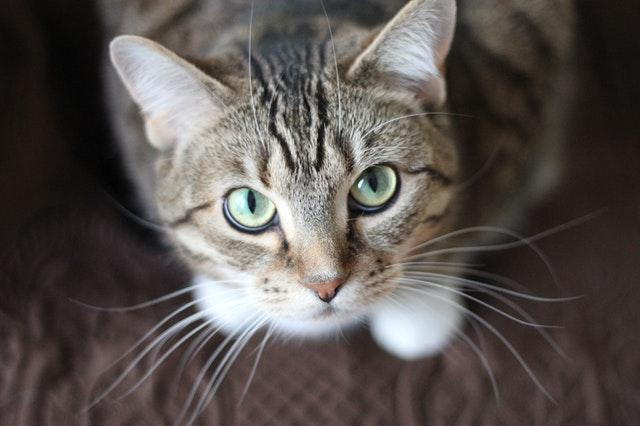
Cats are unique creatures – from their varying coat colors to their diverse personalities – they are certainly different than their human cohabitants. They are obligate carnivores, meaning they have to eat meat, have 38 chromosomes (compared to 46 in people), and have a mechanism that allows them to purr. However, two areas of health that we can relate to them somewhat: diabetes and hyperthyroidism.
Diabetes mellitus in cats is similar to insulin resistance in humans. With diabetes, the pancreas does not produce enough insulin, a hormone needed for the body to take up glucose from the blood. When the body does not have enough insulin, excess glucose builds up in the blood (high blood sugar, or hyperglycemia). Despite the excess glucose in the blood, the body feels as if it is starving. Common signs of diabetes in cats: weight loss despite a good appetite and increased drinking/urination.
Unregulated diabetes can lead to severe illness and complications. Diabetes is treated similarly in cats as well – administering insulin as well as feeding a diet low in carbohydrates. Some cats can be managed with a diet change alone. It is very important to monitor sugar levels while managing diabetes as levels that are too high or too low are very dangerous. Cats with diabetes are more prone to infections, pancreatitis, liver problems, and other diseases, so they must be monitored very closely.
Similarly to diabetes, cats with a condition known as hyperthyroidism tend to lose weight despite a good appetite and will drink a lot. The thyroid gland is a butterfly shaped organ that sits at the base of the neck and is responsible for producing thyroid hormones which help regulate our metabolism. Thyroid disease is common in humans. An estimated 20 million Americans have some form of thyroid illness.
While an under-active thyroid is very common in people, especially in women, cats tend to have trouble with an overactive thyroid. In addition to the signs above, they may also have vomiting, diarrhea and may even be hyperactive. Unregulated hyperthyroidism can lead to heart disease, blood clots and other organ damage. Hyperthyroidism can be managed in several ways. Diet, medication, surgery and even radioactive iodine can be considered.
Understanding that these diseases can affect our feline friends can help us to better recognize when they are sick. Cats will often hide their illnesses until the disease is very advanced and more difficult to treat. This makes early intervention and lab work essential for successfully treating these conditions to keep our cats happy and healthy and in our lives for as long as possible!
---
Should you have any questions, comments or concerns, please don't hesitate to contact us by phone at 845-876-6008, or by e-mail at [email protected].
Thank you for continuing to trust Rhinebeck Animal Hospital as part of your pet's health care team!
With warmest regards, Your friends at Rhinebeck Animal Hospital
